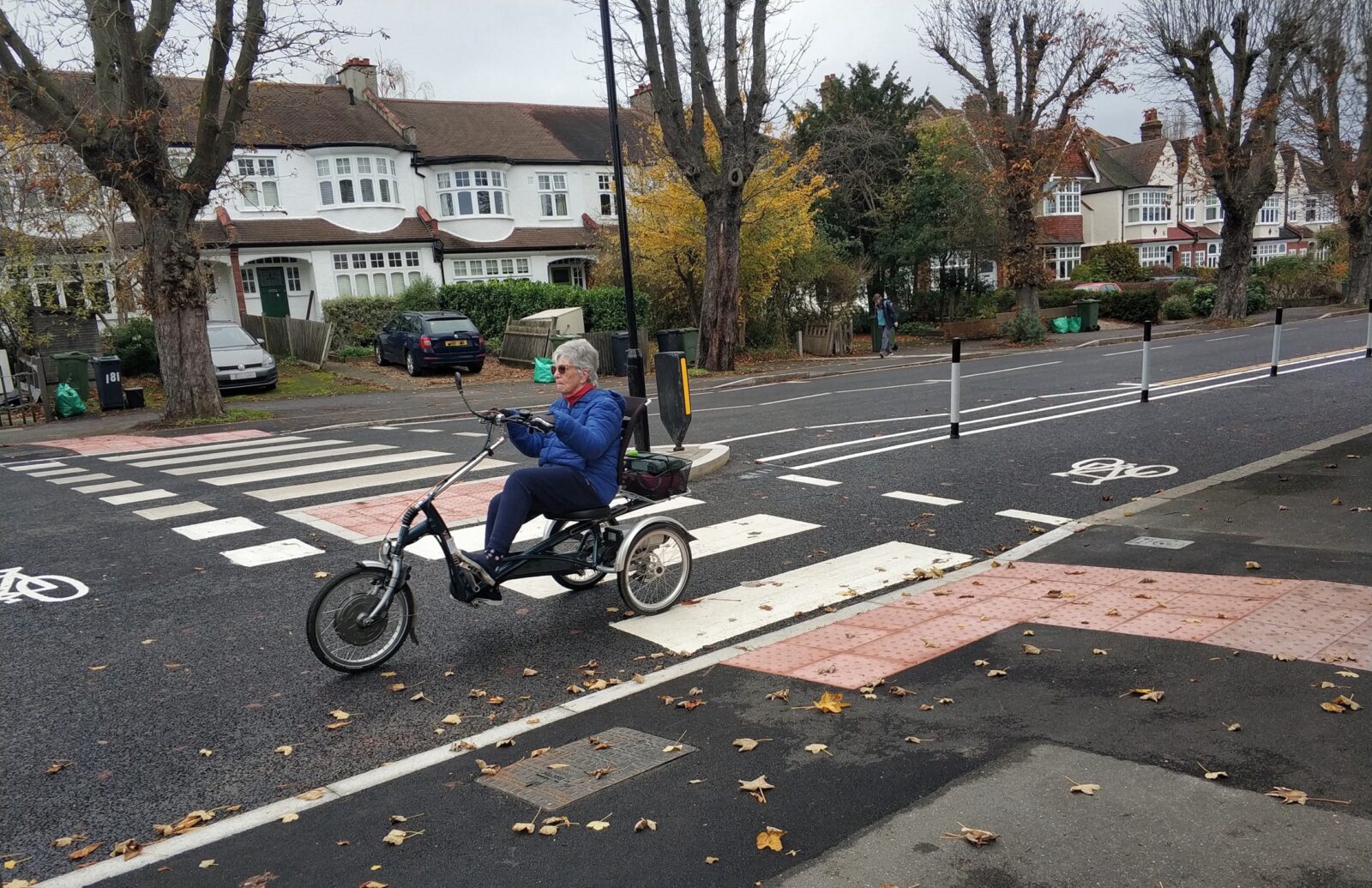Rachel Aldred, Ersilia Verlinghieri, Harrie Larrington-Spencer, Jamie Furlong & David Fevyer Research 2025

A recumbent cyclist crosses a parallel crossing whilst cycling on a separated cycle track running alongside a main road
Travel Well: Health, wellbeing and new cycling infrastructure
Funded by the National Institute for Health and Care Research Programme (grant number NIHR167654)
Active travel – walking, cycling, and wheeling – offers major health and environmental benefits, yet cycling remains rare in Britain, making up less than 1% of daily distance travelled. While London has led a cycling revival through high-quality infrastructure, it’s unclear whether similar results can be achieved in cities with higher car ownership/use, lower population densities and worse public transport.
This five-year research project investigates the impact of new, high-quality cycling infrastructure in Greater Manchester, West Midlands and West Yorkshire. These regions are planning major investments aligned with updated national design standards. The study will assess whether the implementation of this infrastructure shifts travel behaviour, improves health and wellbeing, and reduces car use, carbon emissions and injury risks.
Key research questions include: how does new cycling infrastructure affect active travel, car ownership/driving, road traffic injuries and CO2 emissions? How do these effects vary by area and social group? And what are the impacts on wellbeing and on people from groups that cycle less, and specifically disabled residents?
The research will be gathered using a mixed method approach. A large annual panel survey (15,000 participants per wave) will track behavioural and wellbeing changes over time among people living near new and unbuilt routes; and in-depth qualitative research will explore personal experiences of infrastructure, with particular focus on disabled people and ethnic minority communities, in partnership with Wheels for Wellbeing and JoyRiders.
Led by the University of Westminster’s Active Travel Academy, with partners at the University of Birmingham and LSHTM, the project is co-designed with local authorities and community groups. Regular engagement will ensure findings are shared widely and used to shape better, fairer transport and health policies.
By understanding who benefits from new cycling infrastructure – and how – we aim to support more inclusive, healthier and more sustainable transport systems across England.
